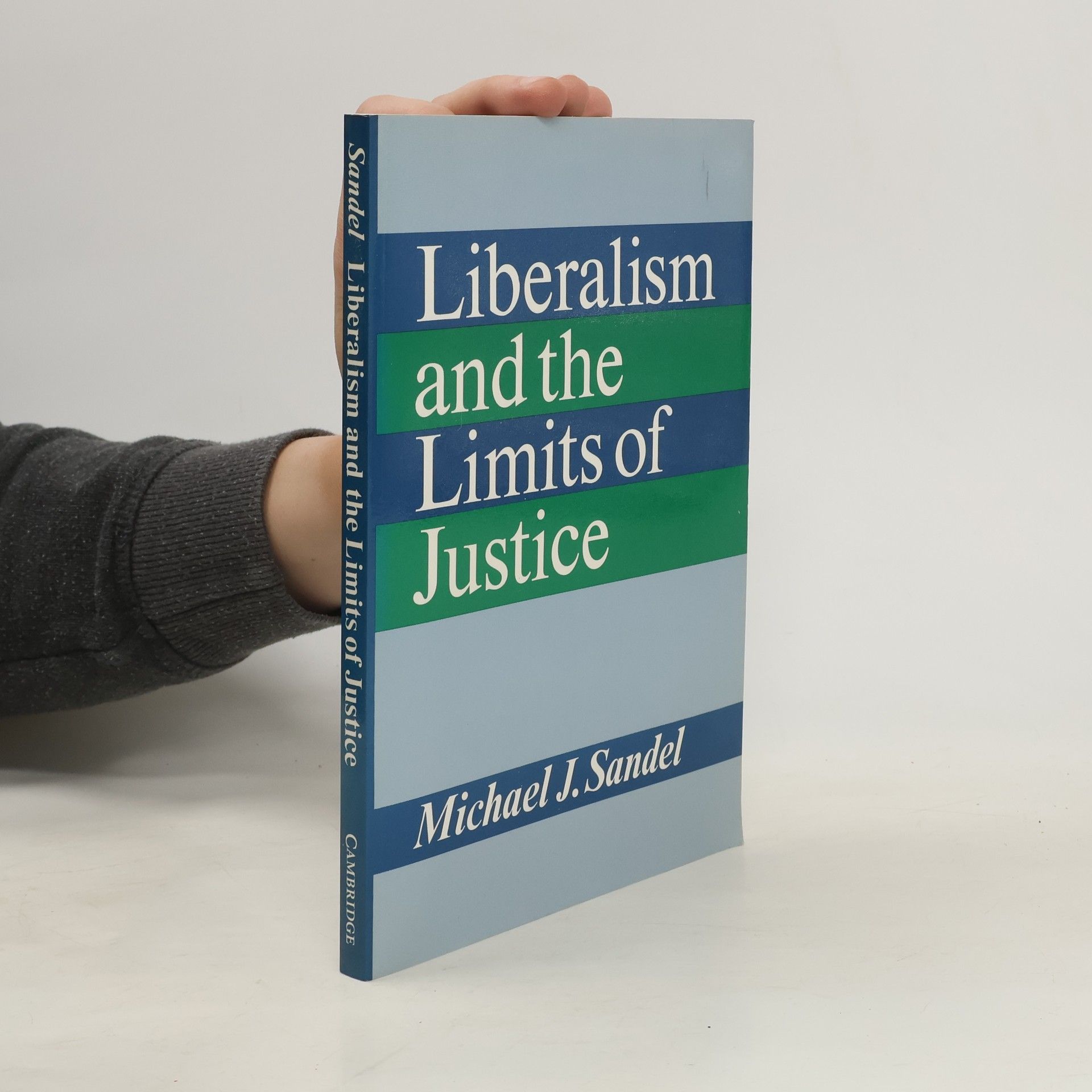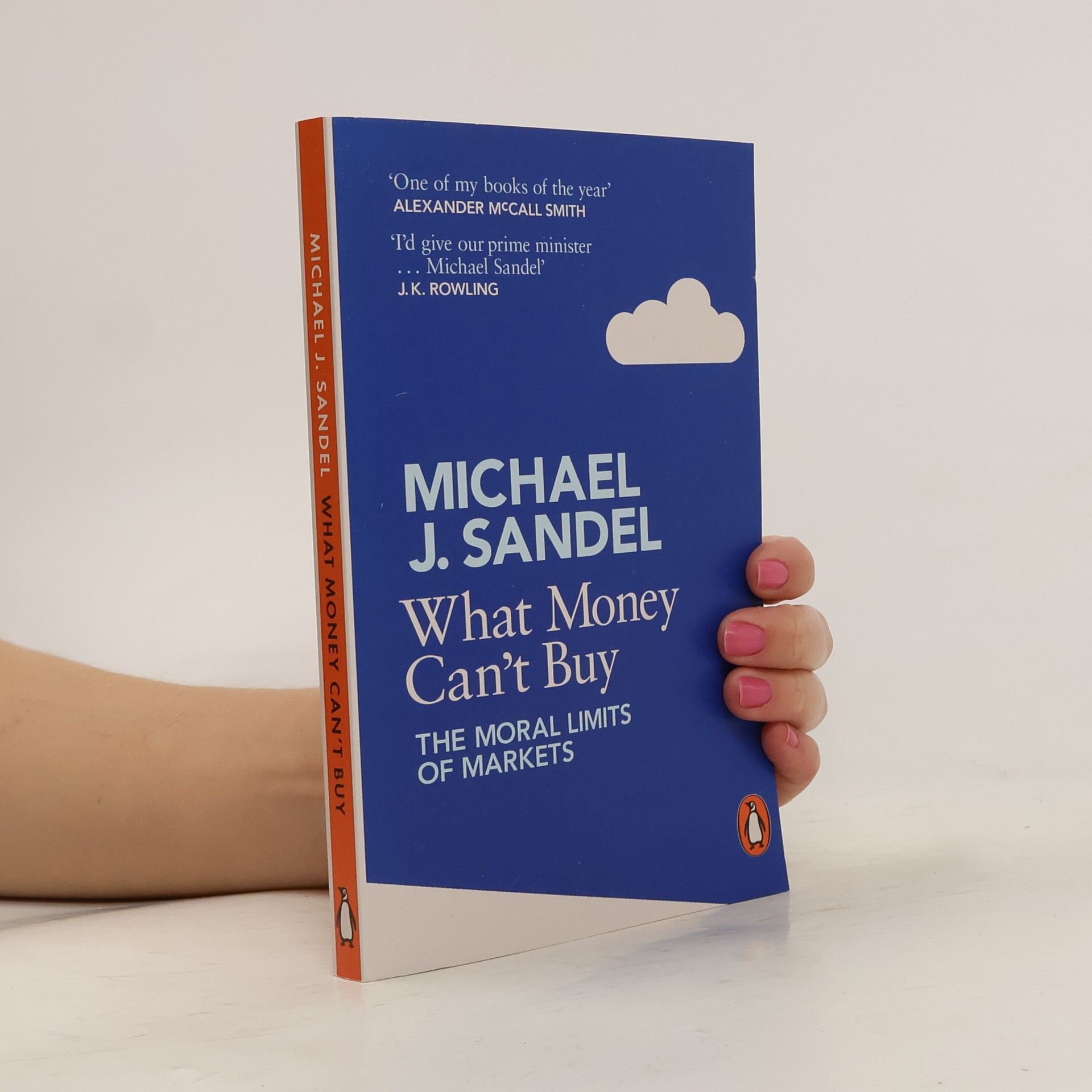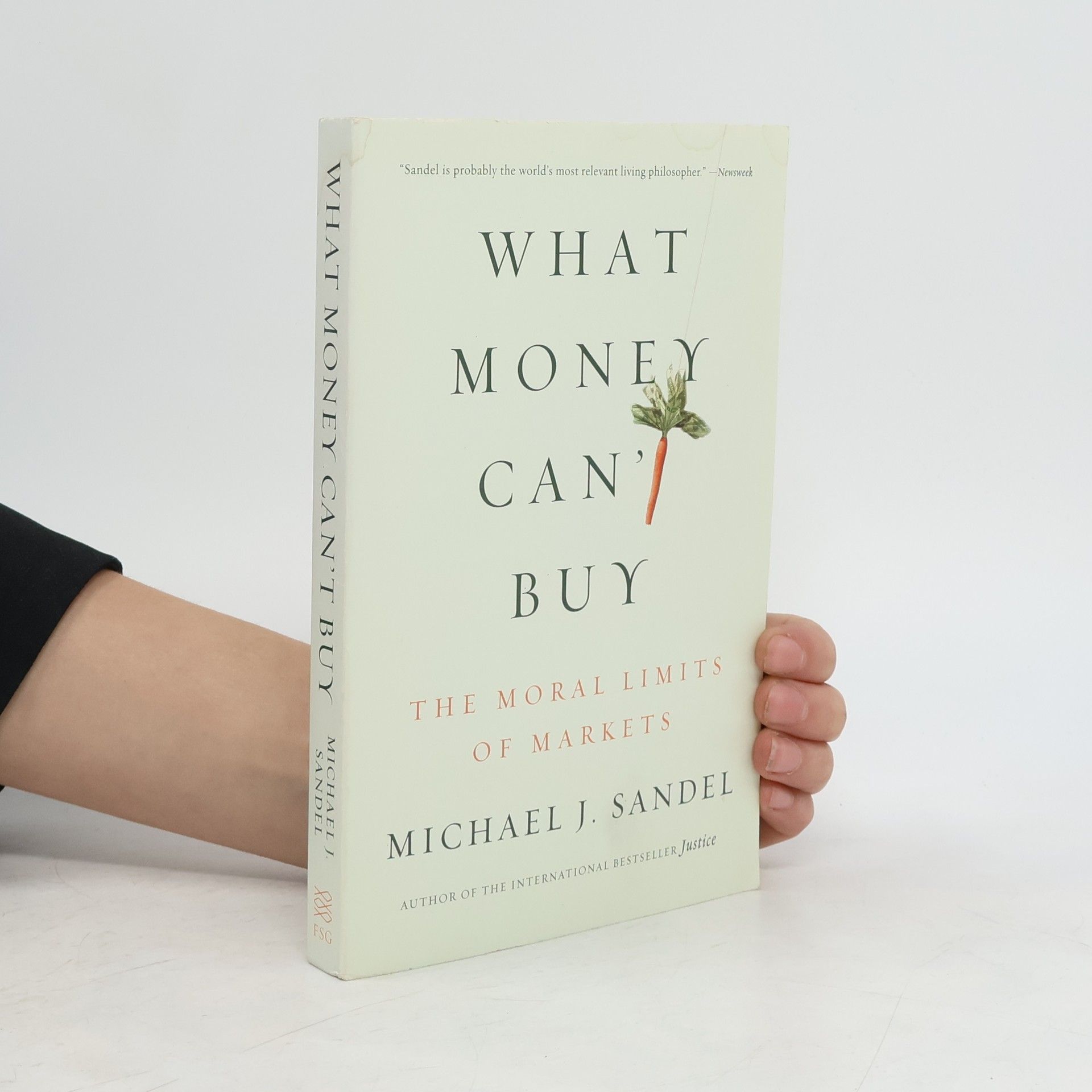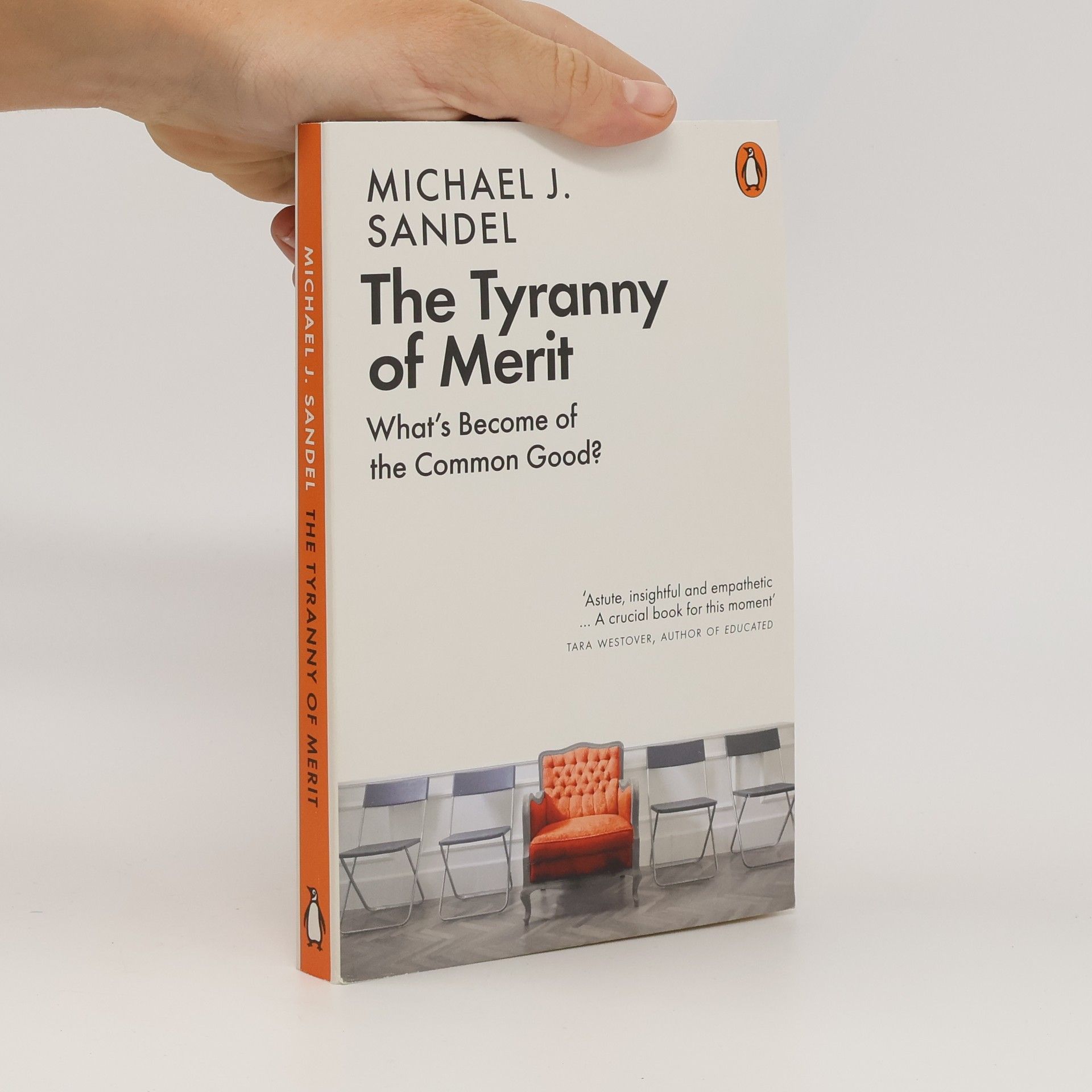Is killing sometimes morally required? Is the free market fair? It is sometimes wrong to tell the truth? What is justice, and what does it mean? These and other questions are at the heart of Michael Sandel's Justice. Considering the role of justice in our society and our lives, he reveals how an understanding of philosophy can help to make sense of politics, religion, morality - and our own convictions. Breaking down hotly contested issues, from abortion, euthanasia and same-sex marriage, to patriotism, dissent and affirmative action, Sandel shows how the biggest questions in our civiv life can be broken down and illuminated through reasoned debate. Justice promises to take readers - of all ages and political persuasions - on an exhilarating journey to confront controversies in a fresh and enlightening way.
Michael Sandel Books
Michael J. Sandel is an American political philosopher renowned for his exploration of moral and political questions. His work delves deeply into the nature of justice, citizenship, and the public good. Sandel challenges modern liberal conceptions of individual autonomy, emphasizing the significance of social ties and shared values. His analyses prompt reflection on how our personal identities and moral commitments shape our political lives, and how we can foster a more just and cohesive society.







These are dangerous times for democracy. We live in an age of winners and losers, where the odds are stacked in favour of the already fortunate. Stalled social mobility and entrenched inequality give the lie to the promise that "you can make it if you try". And the consequence is a brew of anger and frustration that has fuelled populist protest, with the triumph of Brexit and election of Donald Trump. Michael J. Sandel argues that to overcome the polarized politics of our time, we must rethink the attitudes toward success and failure that have accompanied globalisation and rising inequality. Sandel highlights the hubris a meritocracy generates among the winners and the harsh judgement it imposes on those left behind. He offers an alternative way of thinking about success - more attentive to the role of luck in human affairs, more conducive to an ethic of humility, and more hospitable to a politics of the common good.
The tyranny of merit : what's become of the common good?
- 288 pages
- 11 hours of reading
"The world-renowned philosopher and author of the bestselling Justice explores the central question of our time: What has become of the common good? These are dangerous times for democracy. We live in an age of winners and losers, where the odds are stacked in favor of the already fortunate. Stalled social mobility and entrenched inequality give the lie to the American credo that 'you can make it if you try'. The consequence is a brew of anger and frustration that has fueled populist protest and extreme polarization, and led to deep distrust of both government and our fellow citizens--leaving us morally unprepared to face the profound challenges of our time. World-renowned philosopher Michael J. Sandel argues that to overcome the crises that are upending our world, we must rethink the attitudes toward success and failure that have accompanied globalization and rising inequality. Sandel shows the hubris a meritocracy generates among the winners and the harsh judgment it imposes on those left behind, and traces the dire consequences across a wide swath of American life. He offers an alternative way of thinking about success--more attentive to the role of luck in human affairs, more conducive to an ethic of humility and solidarity, and more affirming of the dignity of work. The Tyranny of Merit points us toward a hopeful vision of a new politics of the common good"--
What Money Can't Buy. Was man für Geld nicht kaufen kann, Englische Ausgabe
- 256 pages
- 9 hours of reading
"Should we pay children to read books or to get good grades? Should we allow corporations to pay for the right to pollute the atmosphere? Is it ethical to pay people to test risky new drugs or to donate their organs? What about hiring mercenaries to fight our wars? Auctioning admission to elite universities? Selling citizenship to immigrants willing to pay? In What Money Can't Buy, Michael J. Sandel takes on one of the biggest ethical questions of our time: Is there something wrong with a world in which everything is for sale? If so, how can we prevent market values from reaching into spheres of life where they don't belong? What are the moral limits of markets? In recent decades, market values have crowded out nonmarket norms in almost every aspect of life---medicine, education, government, law, art, sports, even family life and personal relations. Without quite realizing it, Sandel argues, we have drifted from having a market economy to being a market society. Is this where we want to be? ... What is the proper role of markets in a democratic society---and how can we protect the moral and civic goods that markets don't honor and that money can't buy?"--Back cover
What money can't buy : the moral limits of markets
- 256 pages
- 9 hours of reading
In recent decades, market values have impinged on almost every aspect of life - medicine, education, government, law, even family life. We have drifted from having a market economy to being a market society. In What Money Can't Buy Michael Sandel asks: Isn't there something wrong with a world in which everything is for sale? And how do we protect the things that really matter? 'Brilliant, easily readable, beautifully delivered and often funny . . . an indispensable book.' David Aaronovitch, The Times 'The indispensable voice of reason.' John Gray 'A star philosopher.' Diane Coyle, Independent 'So patient and accumulative in its argument and examples.' John Lanchester 'A wake-up call.' Rowan Williams, Prospect 'Confronting and deeply moving.' Decca Aitkenhead, Guardian 'The world's most relevant living philosopher.' Newsweek 'Currently the most effective communicator of ideas.' Guardian
Liberalism and the limits of justice
- 199 pages
- 7 hours of reading
A liberal society seeks not to impose a single way of life, but to leave its citizens as free as possible to choose their own values and ends. It therefore must govern by principles of justice that do not presuppose any particular vision of the good life. But can any such principles be found? And if not, what are the consequences for justice as a moral and political ideal? These are the questions Michael Sandel takes up in this penetrating critique of contemporary liberalism. This new edition includes a new introduction and a new final chapter in which Professor Sandel responds to the later work of John Rawls.
Twenty-five years after his prescient Democracy's Discontent, Michael Sandel updates his classic work for our more fractious age. He shows how, since the 1990s, Democrats and Republicans embraced a market faith that led to the toxic politics of our time. To rescue democracy, he argues, we must reimagine the economy and revitalize the civic project.
In this compelling dialogue, two of the world’s most influential thinkers reflect on the value of equality and debate what citizens and governments should do to narrow the gaps that separate us. Ranging across economics, philosophy, history, and current affairs, Thomas Piketty and Michael Sandel consider how far we have come in achieving greater equality. At the same time, they confront head-on the extreme divides that remain in wealth, income, power, and status nationally and globally. What can be done at a time of deep political instability and environmental crisis? Piketty and Sandel agree on much: more inclusive investment in health and education, higher progressive taxation, curbing the political power of the rich and the overreach of markets. But how far and how fast can we push? Should we prioritize material or social change? What are the prospects for any change at all with nationalist forces resurgent? How should the left relate to values like patriotism and local solidarity where they collide with the challenges of mass migration and global climate change? To see Piketty and Sandel grapple with these and other problems is to glimpse new possibilities for change and justice but also the stubborn truth that progress towards greater equality never comes quickly or without deep social conflict and political struggle.
Cela więzienna o podwyższonym standardzie: 82 dolary za noc. Donoszenie ciąży przez indyjską matkę zastępczą: 6250 dolarów. Wynajęcie przestrzeni reklamowej na czole człowieka: 777 dolarów. Prawo do zastrzelenia zagrożonego wyginięciem czarnego nosorożca: 150000 dolarów…. Żyjemy w czasach, gdy prawie wszystko można kupić lub sprzedać. W ciągu ostatnich trzech dekad rynek i wartość rynkowa zaczęły rządzić naszym życiem. Ten stan nie jest konsekwencją naszego świadomego wyboru, ale raczej czymś, co nas spotkało. Po zakończeniu zimnej wojny wolny rynek i myślenie rynkowe cieszyły się, ze zrozumiałych względów, ogromnym prestiżem. Żaden inny mechanizm organizacji procesu produkcji i dystrybucji towarów nie sprawdzał się tak dobrze pod względem budowania dostatku i dobrobytu. Jednak podczas gdy rosnąca liczba krajów na całym świecie wdrażała modele gospodarcze oparte na mechanizmach rynkowych, równolegle działo się coś jeszcze. Ekonomia stawała się domeną imperialną. Dziś logika kupna i sprzedaży nie odnosi się już tylko do dóbr materialnych, ale stopniowo zaczyna rządzić całym naszym życiem. Czas zadać sobie pytanie, czy chcemy tak żyć. Ze wstępu autora
Sprawiedliwość. Jak postępować słusznie
- 368 pages
- 13 hours of reading
ŚWIATOWY BESTSELLER Najsłynniejsza książka Michaela J. Sandela, powstała na podstawie popularnych i obleganych przez studentów wykładów, zatytułowanych Sprawiedliwość, które autor prowadzi na Uniwersytecie Harvarda. Pytając o to, czy społeczeństwo jest sprawiedliwe, rozważamy, w jaki sposób dzieli między swoich członków to, co ma dla nas wartość – dochody i bogactwo, prawa i obowiązki, władzę i możliwości, urzędy i zaszczyty. Sprawiedliwe społeczeństwo rozdziela te dobra w odpowiedni sposób; przyznaje każdemu człowiekowi to, co mu się należy. Trudności zaczynają się wtedy, gdy zapytamy, co należy się ludziom i dlaczego. Książka poświęcona jest analizie słabych i mocnych stron trzech sposobów myślenia o sprawiedliwości. Najpierw zajmiemy się ideą maksymalizacji dobrobytu. Następnie wizjami, które wiążą sprawiedliwość z wolnością. Na koniec przejdziemy do teorii, które łączą sprawiedliwość z cnotliwym i dobrym życiem. Zanim podejmiemy próbę oceny tych trzech teorii sprawiedliwości, warto zapytać, jak mogą przebiegać dyskusje filozoficzne - szczególnie w tak niejasnej dziedzinie jak filozofia moralna i polityczna. Punktem wyjścia często są konkretne sytuacje. Ale w jaki sposób dokonuje się przejście od oceny konkretnych okoliczności do określenia zasad sprawiedliwości, które naszych zdaniem powinno się stosować w każdej sytuacji? Na czym polega argumentacja moralna? Z rozdziału I

